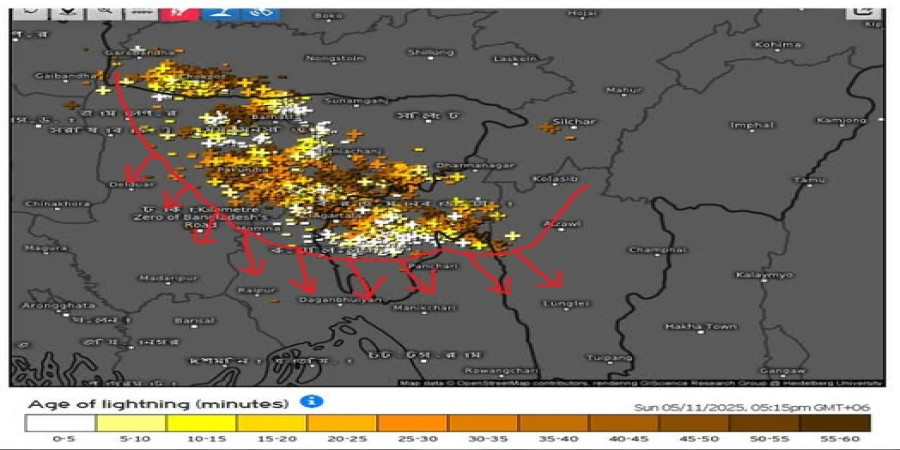
ছবি: Photo: Collected
The European Union's Copernicus Climate Change Service announced on Monday that 2024 is effectively certain to become the hottest year on record, underscoring the urgent need to shield the planet from the impacts of excessive global warming. The agency conveyed this update through its monthly bulletin and reiterated the pressing importance of decisive climate action.
According to Copernicus, the global temperature for 2024 is projected to surpass the pre-industrial average by 1.5 degrees Celsius. This threshold marks a critical milestone tied to the industrial era when fossil fuel consumption began to surge significantly. Scientists have long warned that sustained temperature increases of this magnitude over a decade could lead to severe consequences for the planet.
Despite the landmark Paris Agreement, which binds nations to limit global warming to safer levels, Copernicus Deputy Director Samantha Burgess clarified that a single year exceeding the 1.5-degree Celsius threshold does not constitute a breach of the agreement. However, it highlights the urgent need for stricter adherence to ambitious climate policies. Burgess called for immediate and comprehensive measures to counter the escalating risks associated with climate change.
Fossil fuel emissions, despite global pledges to phase out coal, oil, and gas, remain a significant driver of warming. Burning fossil fuels releases greenhouse gases that trap heat, warming the atmosphere and oceans, disrupting climate patterns, and destabilizing water cycles. The resulting impacts are becoming increasingly apparent, with scientists linking global warming to more frequent and severe weather events.
This year has already witnessed devastating floods in Spain and Kenya, powerful tropical storms in the United States and the Philippines, and widespread droughts and wildfires across South America. These extreme weather events have led to massive economic losses, with Swiss Re, a global reinsurance giant, estimating $310 billion in damages in 2024 alone.
Developing nations are disproportionately affected by these disasters, highlighting their vulnerability to climate change. Experts estimate that these countries will require $1.3 trillion annually by 2035 to effectively combat climate change impacts. In response, wealthy nations pledged $300 billion in climate finance during the United Nations climate negotiations in November.
According to the United Nations' Intergovernmental Panel on Climate Change (IPCC), the current warming period may be the most intense the planet has experienced in the last 125,000 years. Even so, anomalies recorded since mid-2023 have fueled scientific debate. While the El Niño phenomenon has reached its peak in 2024, contributing to global temperature increases, experts note that natural variability alone cannot explain the unprecedented levels of heat in the atmosphere and oceans.
IPCC scientist Robert Vautard stated that although temperatures began to decline following the recent El Niño event, the process has been "exceptionally slow." Researchers are analyzing potential contributing factors, including reductions in reflective particles emitted by ship fuels into clouds, which may exacerbate warming trends.
Julian Nicholas, a climate scientist at Copernicus, described recent years as "unquestionably exceptional." He noted that the growing body of data would provide further insights into the underlying causes of these extraordinary climatic changes.
repoter






